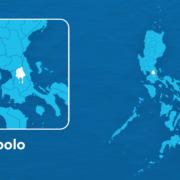Negros Occidental rice farmers get BPI Foundation grant
Rice farmers in Negros Occidental received P5.2 million from the Bank of the Philippine Islands’ (BPI) social development arm which would enable them to purchase farm machines to boost local production.
In a statement, the Philippine Rice Research Institute (PhilRice) said the BPI Foundation provided the cash assistance to farmer-beneficiaries in San Carlos through the Rice Business Innovations System (RiceBIS) Program.
“To ensure the farmer-partners’ self-reliance and the sustainability of their livelihoods, the funds will be allocated for procuring trucks, compact rice mill, threshers, certified seeds and the right amount of fertilizers,” PhilRice said.
Hernan Samson, chair of a farmers’ organization in the province, said the grant would allow them to procure a truck and rice mill for processing palay (unhuksed rice).
BPI Foundation associate director Juvylyn Reniva said the partnership with PhilRice is aligned with the foundation’s aspiration of “Kasama lahat sa pag-unlad (Everyone is included in progress).”
This forms part of the two-year initiative dubbed BPI Foundation Farm to Table in San Carlos, Negros Occidental: Enhancing Market Potential, Opportunities, Welfare and Economic Resilience (Empower) under the RiceBIS Farmers project.RiceBIS aims to create a development model to transform rice and rice-based farming communities nationwide into inclusive, competitive and sustainable agroenterprise models.
The target is to increase the income by 25 percent through agro-enterprises engagement to address the low productivity and income of farming households.Specifically, RiceBIS seeks to establish partnerships with farmers’ organizations for production and agroenterprise development; enhance farmers’ capacity for production and processing, organization building and management, and agripreneurship; and increase yield using various technologies.
Curbing import reliance
It also intends to reduce the cost of producing palay and postharvest losses as well as engage farmers in profitable rice and rice-based enterprises.
Agriculture Secretary Francisco Laurel Jr. earlier unveiled the Department of Agriculture’s (DA) goal of reducing the reliance on rice importation during his term.“Our ultimate goal is to swiftly reduce rice imports for food security and efficiency. We also aim to inspire a new generation of farmers, researchers, and innovators to ensure long-term food security for a prosperous Philippines,” Laurel said last month.Data from the Philippine Statistics Authority (PSA) showed that the self-sufficiency ratio, or the extent to which local output can meet the country’s requirements, stood at 77 percent in 2022 from 81.5 percent a year ago.
A separate PSA data noted that palay production reached 3.8 million metric tons (MT) in the third quarter of this year, a slight increase of 0.3 percent. In 2022, palay output declined to 19.76 million MT from a record high of 19.96 million MT in the past year.The country remains dependent on importation, with the volume of rice imports hitting 3.13 million MT as of Dec. 7, according to the Bureau of Plant Industry. Vietnam accounted for 2.8 million MT or 88.1 percent of the total.



















